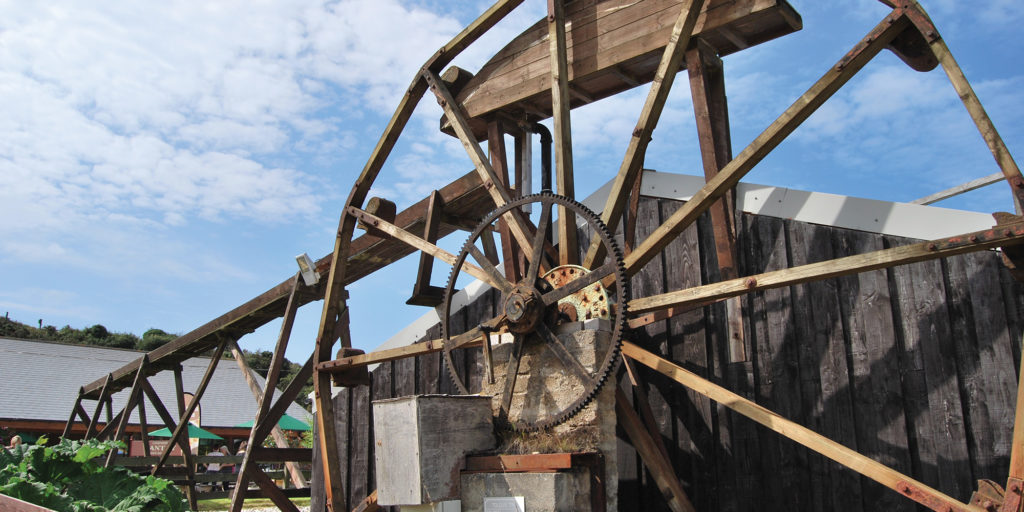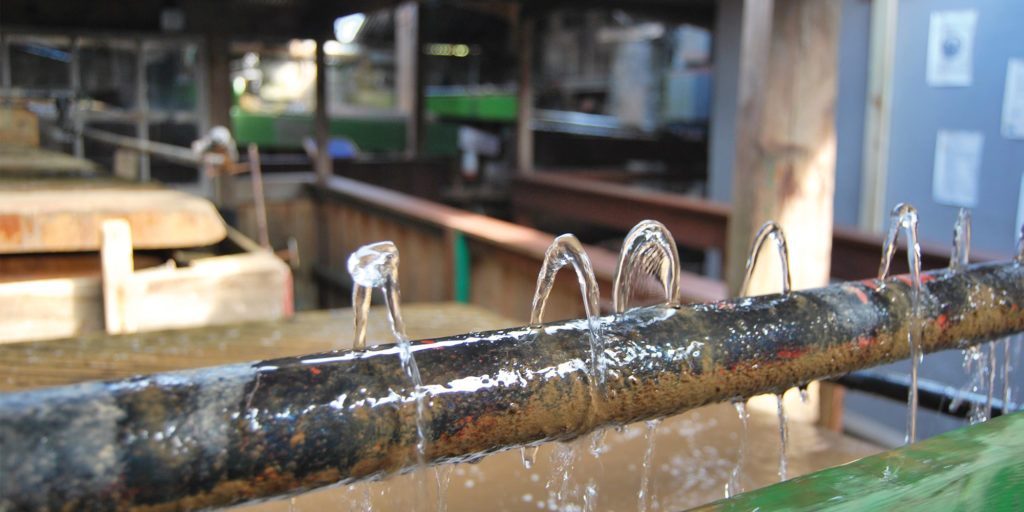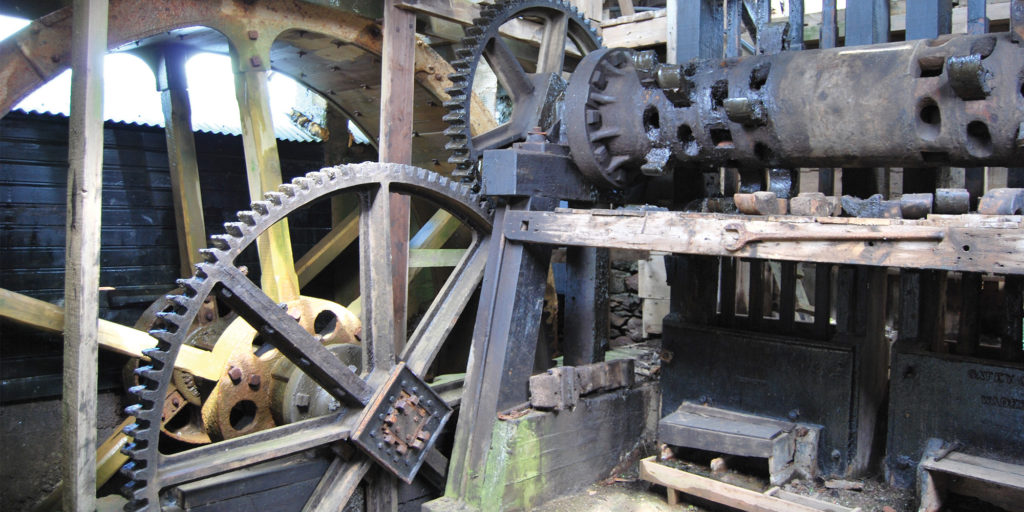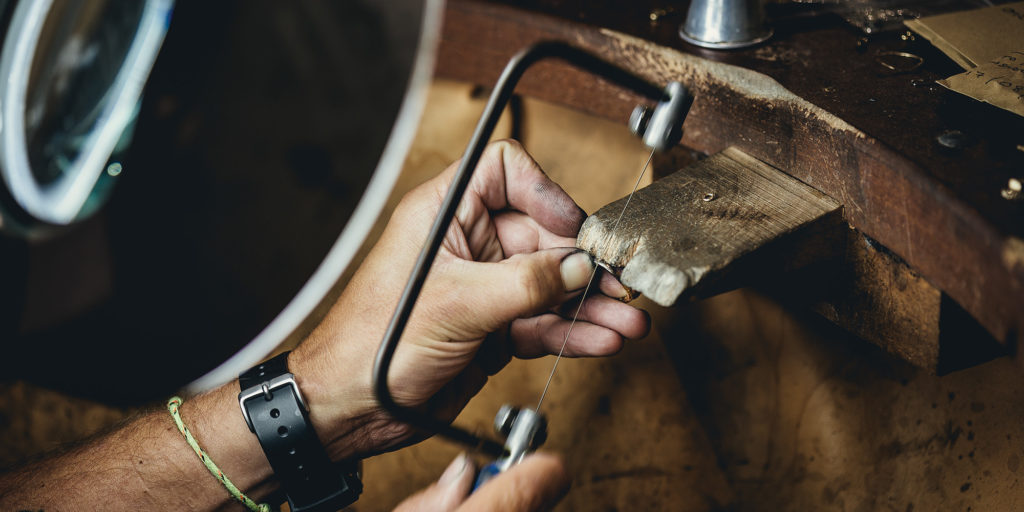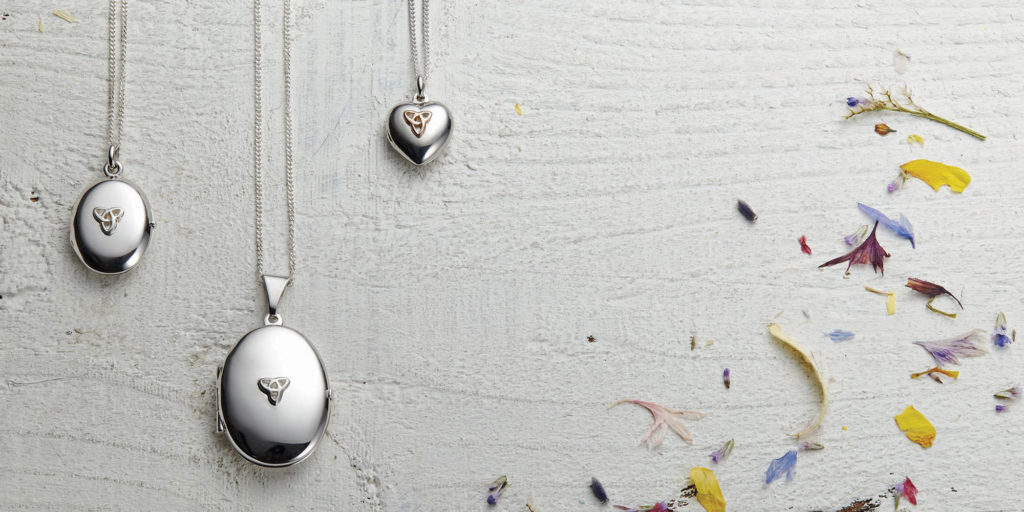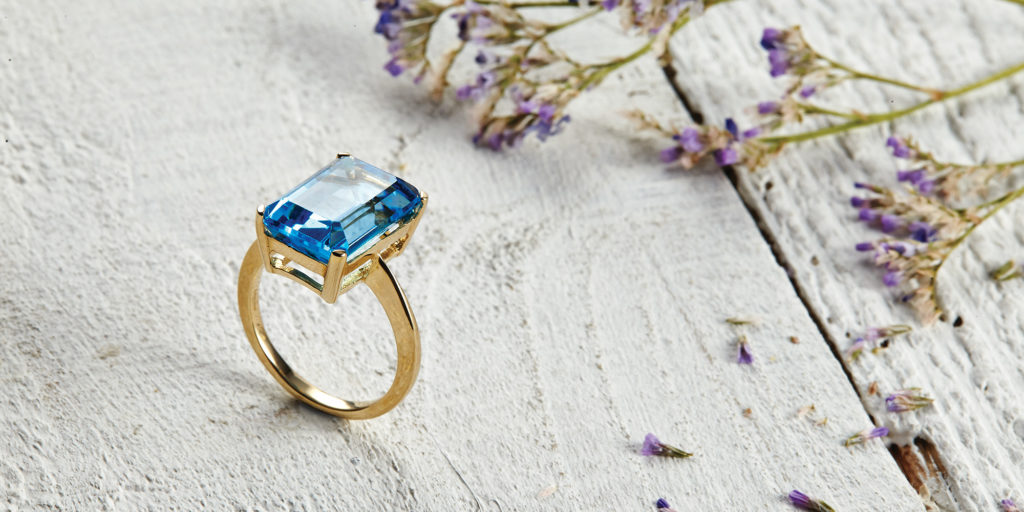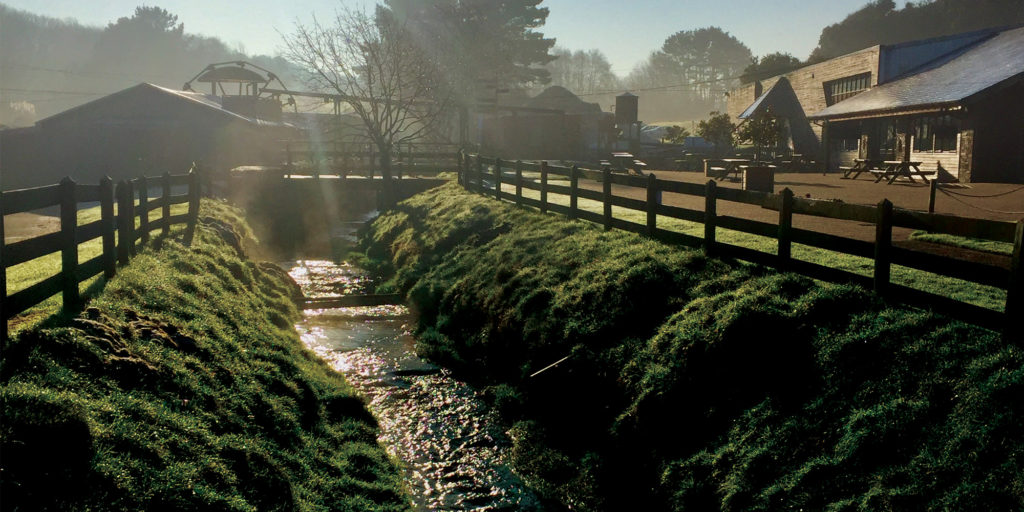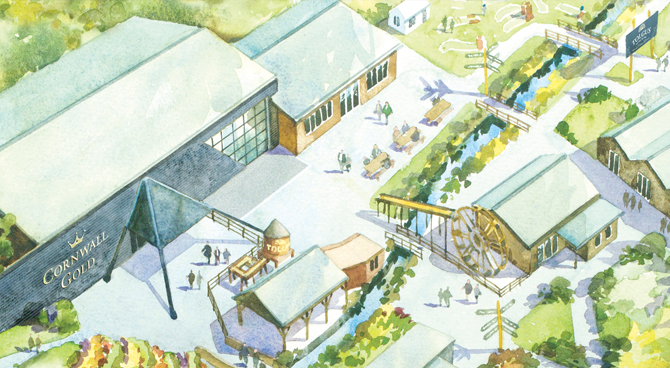

A tour through Tolgus
Head to Cornwall Gold and walk in the footsteps of Cornwall’s tin miners, at Tolgus Mill.
If you’ve been watching Poldark recently, you’ll be wondering what life may have been like for Cornish miners at the height of the industry. At Cornwall Gold’s Tolgus Tin Mill, you could be getting the very insight you’ve been looking for, walking in the footsteps of the men – and children – who once worked there.
“… the mill remains the last original tin streaming works in Europe.”
Now part of the Cornwall Gold site between Redruth and Portreath, Tolgus Mill has been in action since 1865 and is at the heart of a renovation project, aimed at preserving the site’s historic heritage. Cornwall Gold’s Steve Ackland explains: “This was the over ground operation of the mining industry, where local mining waste and tin ore from sand and river deposits were filtered for every last bit of tin. Workers would spend up to 15 hours a day, hand-sifting other people’s rubbish.”
Today, while much of the 18-acre site is taken up by Cornwall Gold’s beautiful jewellery showrooms, the mill remains the last original tin streaming works in Europe. Indeed, tin is still smelted here and is mixed with silver and gold to produce the stunning Tolgus Tin collection. Impressively, proceeds from this range are reinvested back into the mill, ensuring that restoration continues and Tolgus’ future is safeguarded.
Tours of the mill, which run daily between 10am and 4pm at just £4 per person, allow you to see a set of original Cornish stamps – more than 150 years old – and learn about life as a miner, including the back-breaking conditions from which they were required to extract the most meagre amounts of tin.
Tolgus was, undoubtedly, safer than Cornwall’s underground mines, yet to wander through the mill is to be reminded of just how hard and, indeed, dangerous the work could be. Noisy. Dusty. Dirty. Wet. Even children were expected to follow in their fathers’ and grandfathers’ footsteps, being placed on duty in the slime pits or under frames. “It’s a form of labour that would be unthinkable today,” says Steve. “Kids that visit us are amazed by the harsh conditions, and all of a sudden, going to school seems that much more appealing!”
"... the mill remains the last original tin streaming works in Europe."
